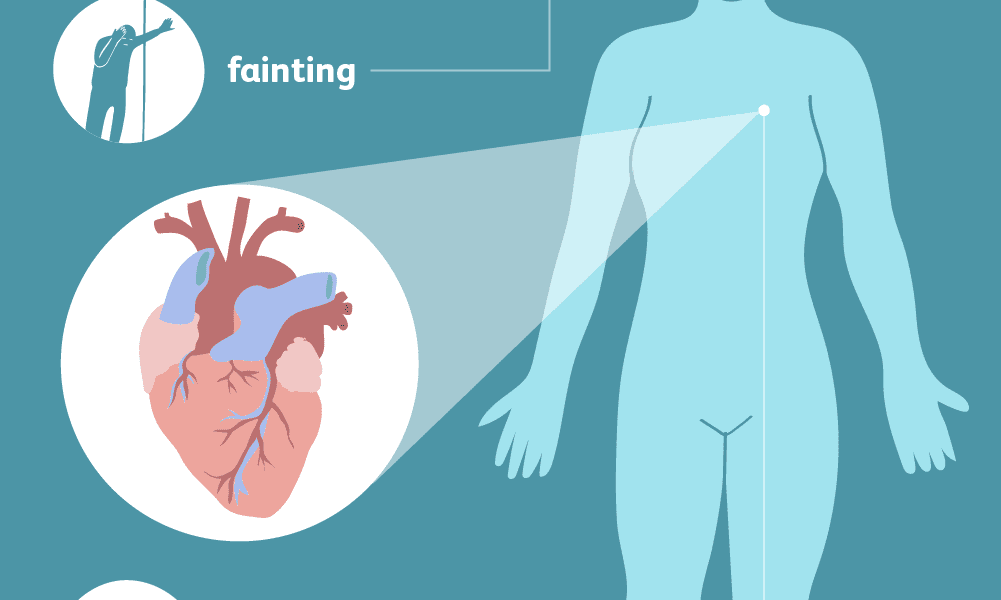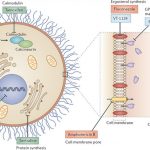An arrhythmia (also called dysrhythmia) is an irregular or abnormal heartbeat.
What is my pulse?
Your pulse indicates your heart rate, or the number of times your heart beats in one minute. Pulse rates vary from person to person. Your pulse is slower when you are at rest and increases when you exercise, since more oxygen- rich blood is needed by the body during exercise.
How do I take my pulse?
You can tell how fast your heart is thrashing by feeling your pulse. You can feel your pulse on your wrist or neck. Place the tips of your index and middle fingers on the inner wrist of your other arm, just below the base of your thumb. Or, place the tips of your index and middle fingers on your lower neck, on either side of your windpipe. Press lightly with your fingers until you feel the blood pulsing beneath your fingers. You may need to move your fingers around slightly up or down until you feel the pulsing.
You can count the number of beats in 10 seconds and multiply by 6 to determine your heart rate in beats per minute. A normal heart rate, at rest, is 50 to 100 beats per minute.
Heart Rhythms on ECG
The heart’s electrical system triggers the heartbeat. Each beat of the heart is represented on the electrocardiogram (EKG or ECG) by a wave arm.
The normal heart rhythm (normal sinus rhythm) shows the electrical activity in the heart is following the normal pathway. The rhythm is regular and the node is normal (about 50 to 100 beats per minute).
Tachycardia: fast heart rhythm (greater than 100 beats per minute)
Bradycardia: slow heart rhythm (less than 60 beats per minute)
The Heart’s Electrical System
The atria (the heart’s upper chambers) and ventricles (the heart’s lower chambers) work together, alternately contracting and relaxing to pump blood through the heart. The electrical system of the heart is the power source that makes this possible. Here’s what happens during a normal heartbeat:
Irregular heart rhythms can also occur in normal, healthy hearts. Arrhythmias can also be caused by certain substances or medications, such as caffeine, nicotine, alcohol, cocaine, inhaled aerosols, diet pills, and cough and cold remedies. Emotional states such as shock, fright or stress can also cause irregular heart rhythms.
Arrhythmias that are recurrent or related to an underlying heart condition are more concerning and should always be evaluated by a doctor.
In most cases, treating the underlying condition will take care of the arrhythmia. If not, many medications and procedures are available to eliminate or control the abnormal heart rhythm.
Types of arrhythmias?
- Tachycardia: A fast heart rhythm with a rate of more than 100 beats per minute.
- Bradycardia: A slow heart rhythm with a rate below 60 beats per minute.
- Supraventricular arrhythmias: Arrhythmias that begin in the atria (the heart’s upper chambers). “Supra” means above; “ventricular” refers to the lower chambers of the heart, or ventricles.
- Ventricular arrhythmias: Arrhythmias that begin in the ventricles (the heart’s lower chambers).
- Bradyarrhythmias: Slow heart rhythms that may be caused by disease in the heart’s conduction system, such as the sinoatrial (SA) node, atrioventricular (AV) node or His-Purkinje network.
Symptoms of an arrhythmia?
An arrhythmia may be “silent” and not cause any symptoms. A doctor can detect an irregular heartbeat during an examination by taking your pulse, listening to your heart or by performing diagnostic tests. If symptoms occur, they may include:
- Palpitations: A feeling of skipped heartbeats, fluttering, “flip-flops” or feeling that the heart is “running away”
- Pounding in the chest
- Dizziness or feeling lightheaded
- Shortness of breath
- Chest discomfort
- Weakness or fatigue (feeling very tired)
Causes of arrhythmias?
Arrhythmias can be caused by:
- Coronary artery disease
- High blood pressure
- Changes in the heart muscle (cardiomyopathy)
- Valve disorders
- Electrolyte imbalances in the blood, such as sodium or potassium
- Injury from a heart attack
- The healing process after heart surgery
- Other medical conditions
Prevention
You will need to visit your doctor for regular follow-up visits to:
- Make sure your arrhythmia is controlled
- Properly adjust your medications
- Evaluate the function of any implanted devices
- Make sure you are staying healthy and not having other medical problems
Your doctor will tell you how often you should visit. Call your doctor in between visits if your symptoms become more frequent or severe.
The list of some arrhythmia medicine:



